Featured Student: Markus Hanson
November 4, 2025

November 4, 2025

I’m in Honours Environmental Sciences and will graduate in Spring 2026.
I chose to enrol in Co-op in part to discover my research interests for my honours thesis and career, but also to gain meaningful connections with environmentalists and to develop hands-on experience in research and climate adaptation and mitigation work with community partners.
I chose to enrol in Co-op in part to discover my research interests for my honours thesis and career, but also to gain meaningful connections with environmentalists and to develop hands-on experience in research and climate adaptation and mitigation work with community partners.
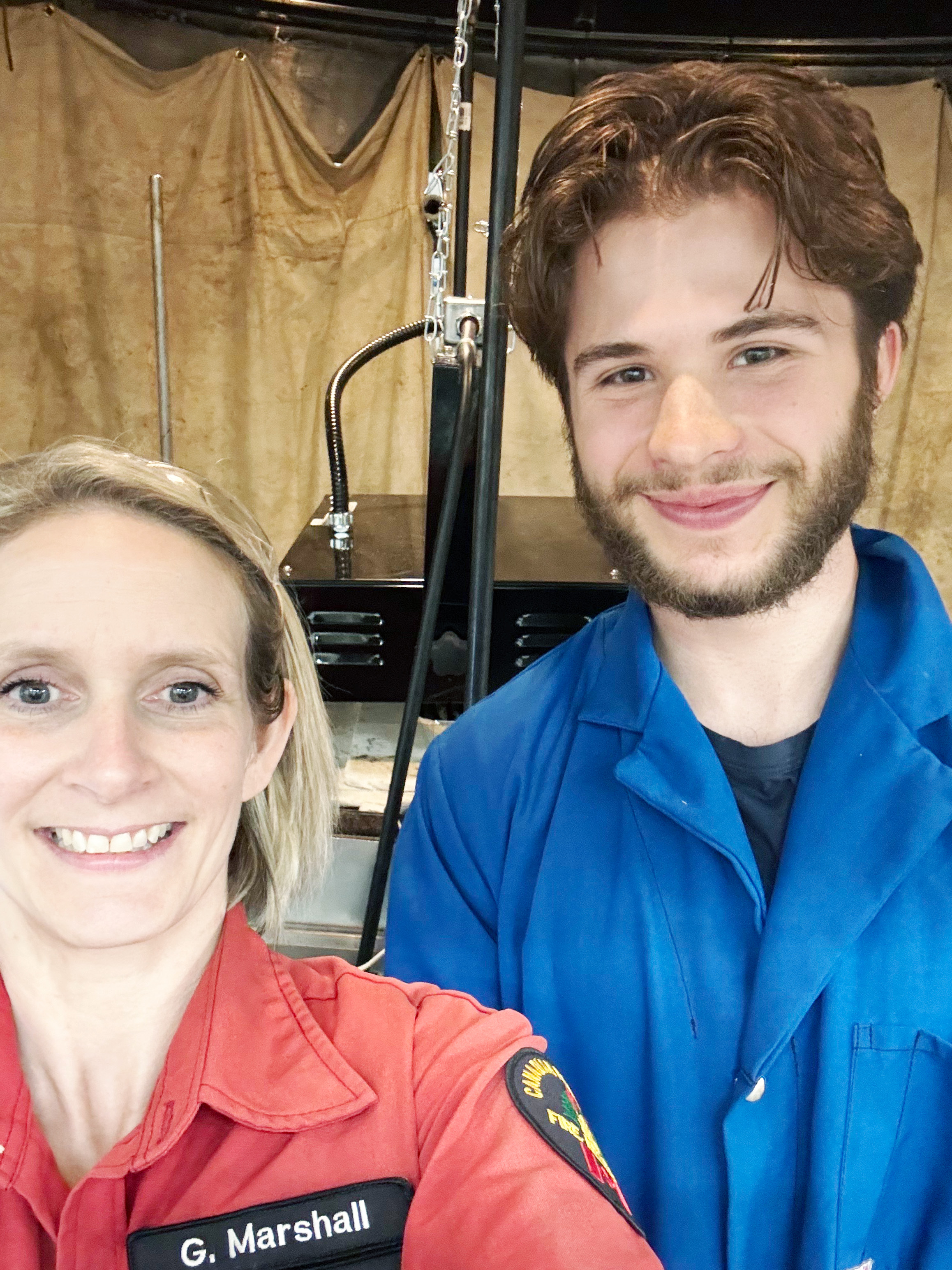
I worked as a Fire Weather student with Natural Resources Canada at the Northern Forestry Centre in Edmonton for my first four months, then joined Environment and Climate Change Canada in Vancouver as a Student Environmental Analyst on marine pollution for eight months.
I’m currently working at UBC Forestry in the Centre for Wildfire Coexistence as a Research Assistant for my last co-op term.
It's hard for me to pick just one!
I will say that my training at the Alex Fraser Research Forest with UBC Forestry was amazing.
I learned from foresters about the conservation and fuel reduction methodologies they’re employing to keep communities and ecosystems safe from the intensifying, climate change-driven fire seasons we see each year.
I spent two weeks with the other assistants and Master's students at what was basically a forestry summer camp, spending days in the community forest learning about tree and fuel mensuration techniques. I learned from foresters about the conservation and fuel reduction methodologies they’re employing to keep communities and ecosystems safe from the intensifying, climate change-driven fire seasons we see each year.
Outside of working hours, us students were spending evenings cooking in the cabin, feeding the chickens and sheep at the research forest farm—and even learning how to use fire pumps and perform basic wildfire fighting. It was a pretty magical experience!
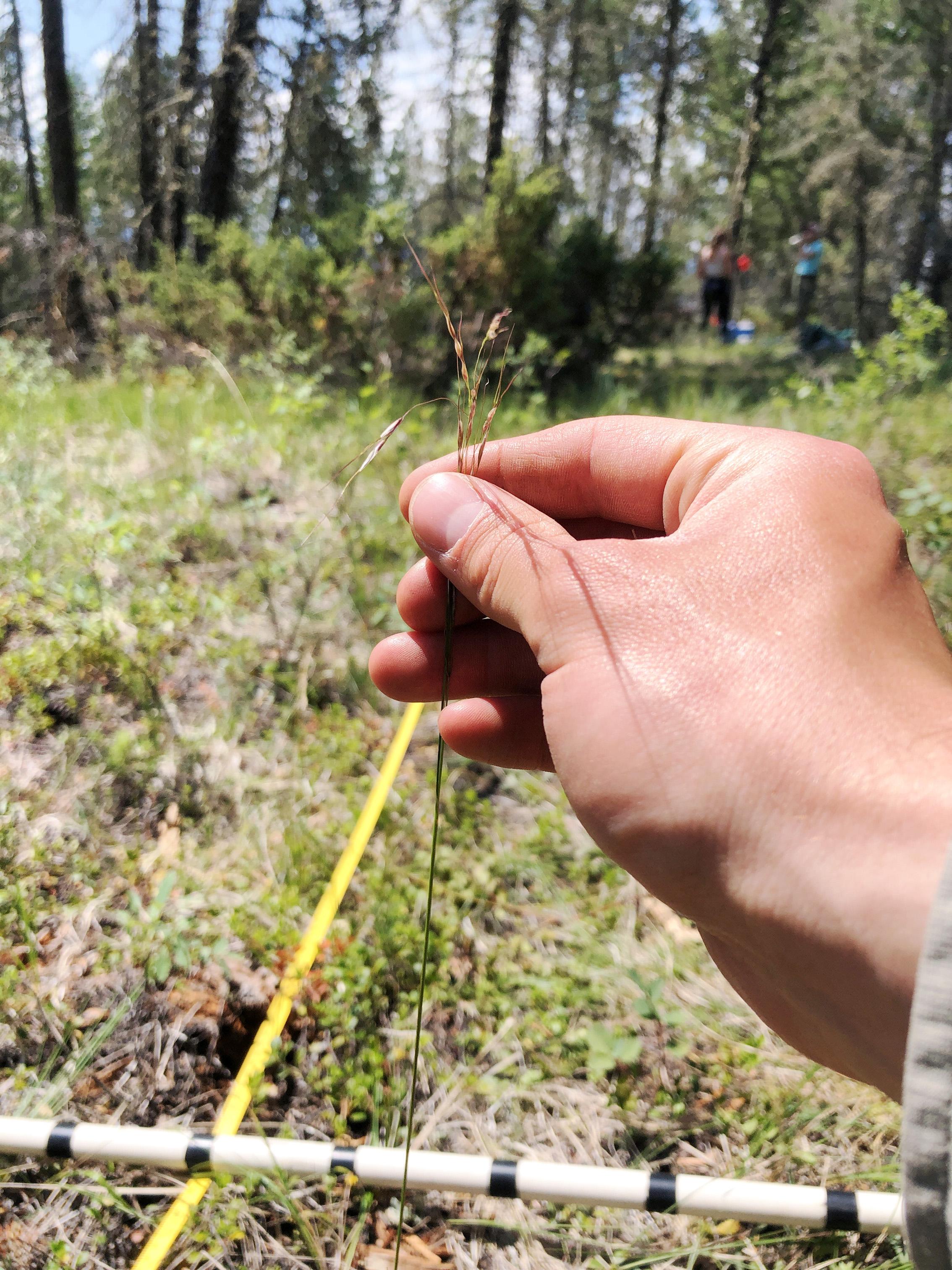
My best achievement was writing a systematic research review on maritime wind technologies and giving a presentation on them to my colleagues at ECCC.
It was a long and difficult process, but I was proud to produce work that the folks at ECCC may be able to use, to advocate for new clean propulsion methods to reduce emissions and fuel consumption in the maritime shipping industry!
Again, I worked in so many places that it is quite hard to choose!
While with UBC Forestry this summer, I spent some of my best days at Salt Spring Island. I visited the farmer's market and got a painting, as well as some yarn and craft cheese. I also got to view gorgeous pottery, learn archery (as well as visit the bowyer's shop), read at the beach, swim and visit a provincial park with an operational traditional sheep and goat farm.
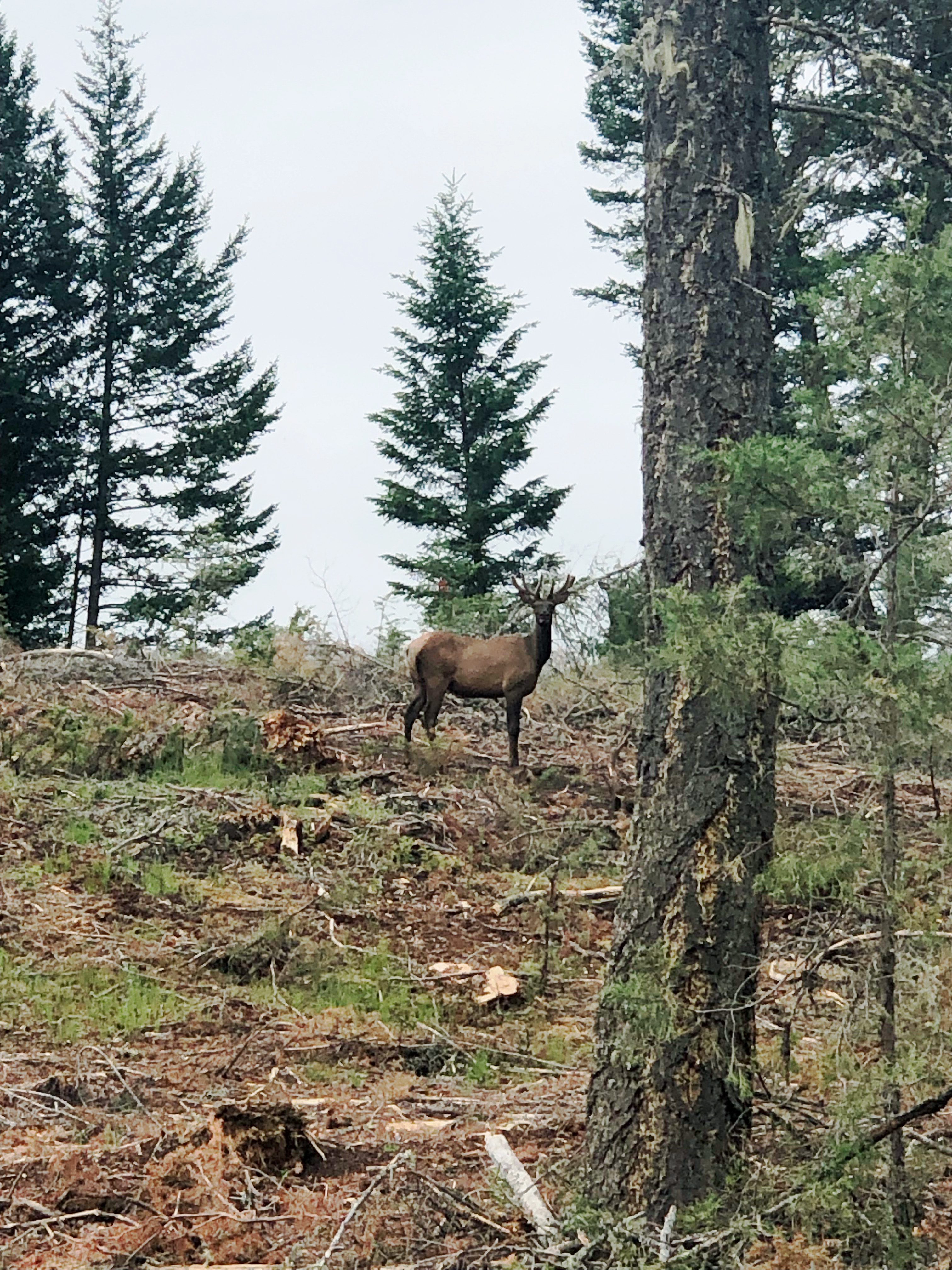
I felt most challenged by learning the ins and outs of new fields, as I transitioned from learning about fire weather modelling to learning about marine fuels and pollution chemistry and then back to fire but in a forestry and ecology lens was difficult.
This was especially true, considering I had not taken any courses on these subjects prior to working there. This encouraged me to dive into these fields head on, to research the problems and core knowledge that people in these fields have when time was available to me.
At ECCC, this would culminate in me taking the initiative to ask questions about marine pollution news with my supervisor in our weekly meetings and to always make an effort to ask one good question even in much larger meetings at ECCC.
After all, being a Co-op student means being a learner and so it is the perfect opportunity to ask questions!
My self care practices include trail running, reading (which often consists of book recommendations from coworkers at ECCC and UBC Forestry) and filling out a virtual newsletter some of my friends have started.
As many of my friends from Environmental Sciences have been off on Co-op terms or exchange semesters away from each other, we decided to build a website where each month everyone journals about their experiences working and living abroad, submitting photos and answering seasonal prompts.
All of these submissions are then posted to a group website where everyone can catch up! It is very fulfilling to take some time to reflect on the work I have done, the places I have been, and to see all the cool things everyone else is up to.
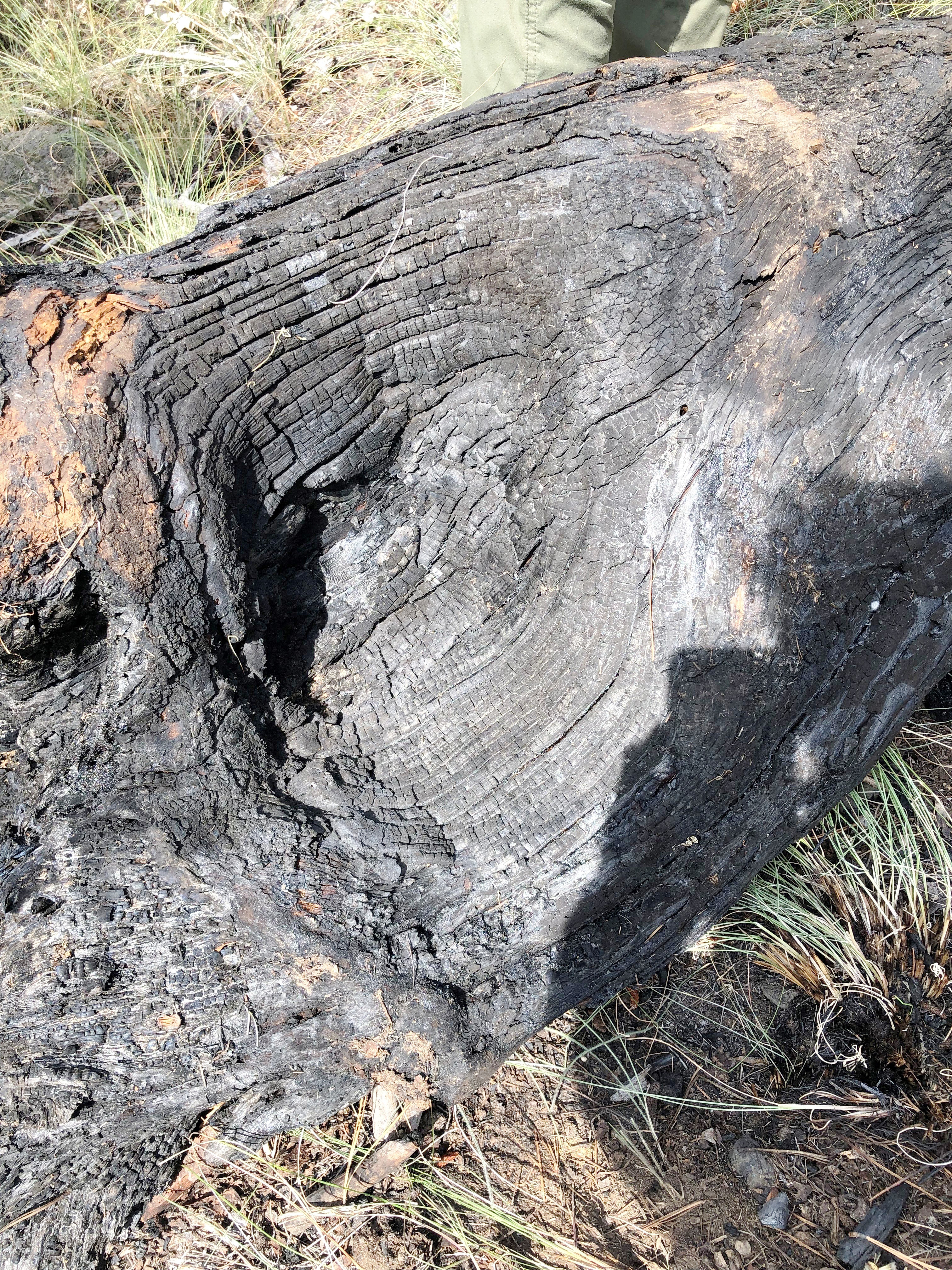
Co-op has given me more strength; I’ve been pushed out of my comfort zone on coding tasks in Edmonton, research and writing at ECCC, and overcoming the exposure from working in the wild at UBC Forestry.
Without the learning environment that Co-op provides, I don’t know if I would have had the time or mentoring to be able to push through these long-term projects.
Co-op has given me many connections at my work placements.
Connecting with people in the wildfire and marine spaces gave me ample time to learn more about the problems of the fields but has also provided some unique mentoring opportunities.
Connecting with people in the wildfire and marine spaces gave me ample time to learn more about the problems of the fields but has also provided some unique mentoring opportunities. At ECCC, my supervisor shed so much insight on the grad school process and research space that I would never get just in the classroom (I don't want to give his name but I do want to say thank you so much to him)!
I was also able to connect with managers and even folks at the Assistant Deputy Minister level in speed mentoring sessions.
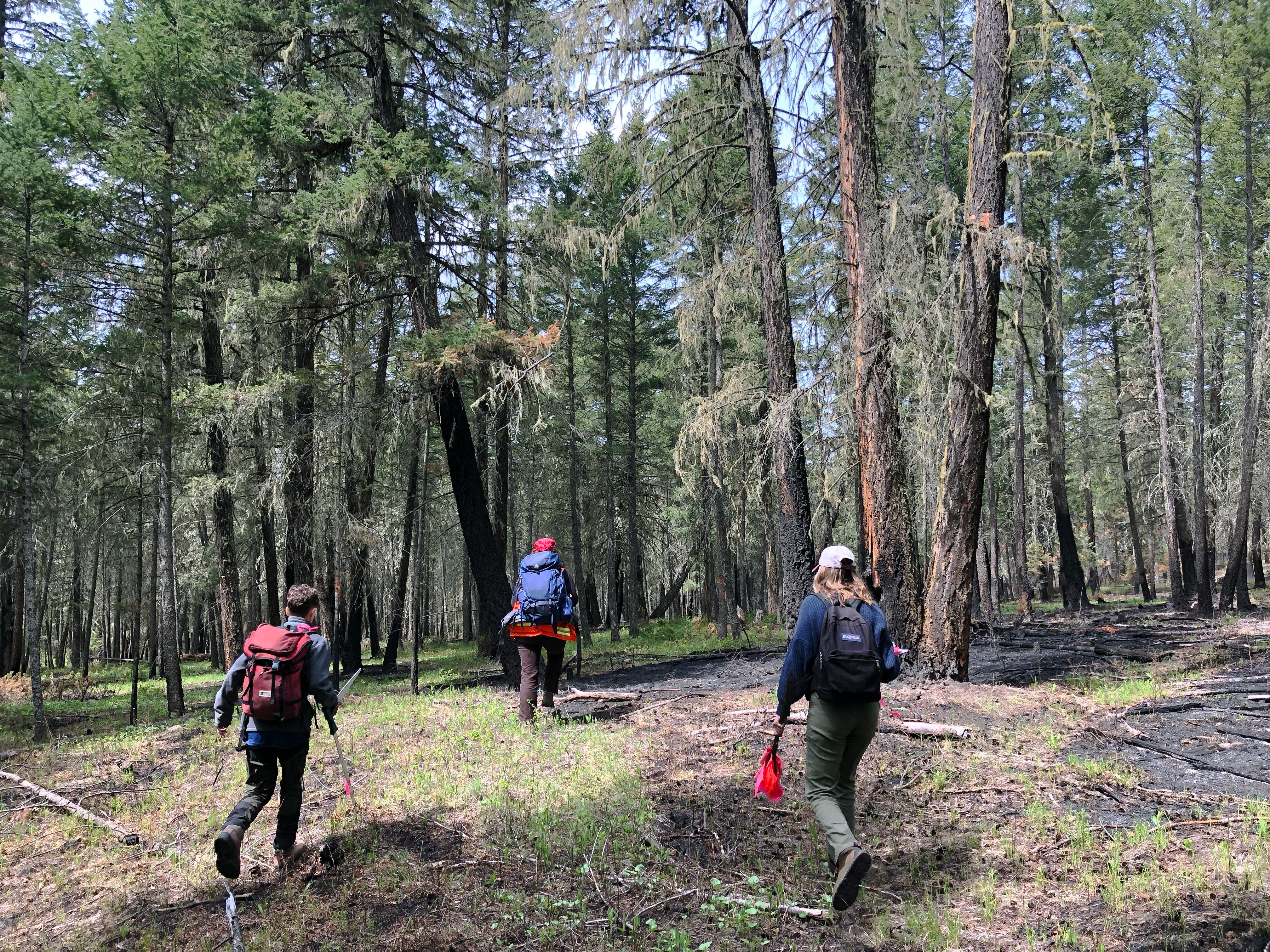
I would say the practice interviews and the one-on-one advice from my Coordinator has been very helpful; these insights into how to give better answers, be more confident and how to more effectively convey my experience have not only translated into more job offers for me but also less work.
I would say the practice interviews and the one-on-one advice from my Coordinator has been very helpful; these insights into how to give better answers, be more confident and how to more effectively convey my experience have not only translated into more job offers for me but also less work.
By putting in more time to write effective applications, I was able to seriously reduce the number of applications I had to send and had more success in connecting with employers during interviews. Thank-you Sanya!
My advice to future Co-op students would be to work smarter and not harder; the job market may not be ideal for everyone, so this is the perfect time to work on improving the quality of your applications by consulting with your Coordinator.
Also, apply and practice for interviews alongside friends and other Co-op students. It’s so much easier to apply with feedback from others and the experience was so much less stressful when I began to work alongside people who were dealing with the same challenges that I was.
I’m looking forward to taking a small sabbatical to travel and hike, followed by attending grad school or working abroad, depending on which opportunities arise.
Co-op taught me to be open to exploring new opportunities and so I am no longer worried about trying to find the "right path". I now find I care more about doing the work in applying to various opportunities so I can pick a position that gives me joy and fulfillment.
We honour xwməθkwəy̓ əm (Musqueam) on whose ancestral, unceded territory UBC Vancouver is situated. UBC Science is committed to building meaningful relationships with Indigenous peoples so we can advance Reconciliation and ensure traditional ways of knowing enrich our teaching and research.
Learn more: Musqueam First Nation